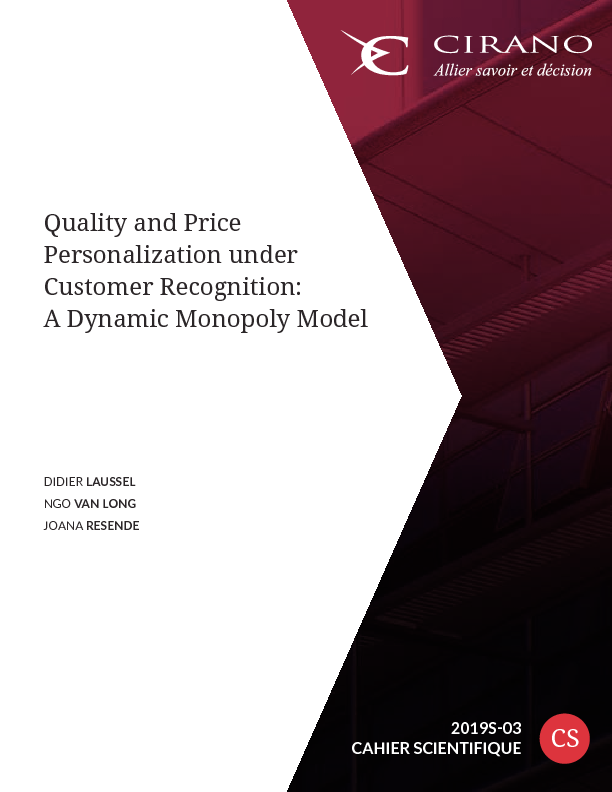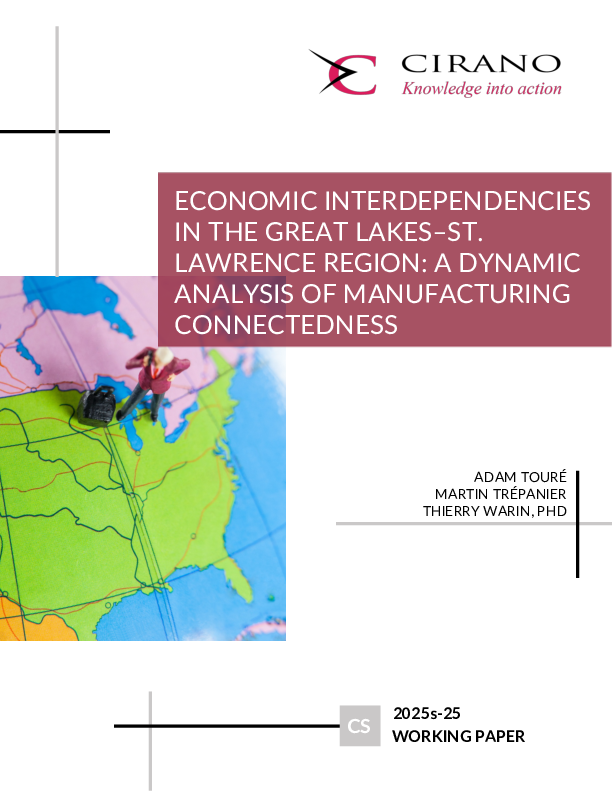Quality and Price Personalization under Customer Recognition: A Dynamic Monopoly Model
We present a model of hyper-segmentation of market, where a monopolist firm uses information technology to acquire, in one period, all the information about the preferences of consumers who purchase its vertically differentiated products within that period. Lower consumer types have an incentive to delay their purchases until next period in order to obtain a higher (and non-distorted) quality offer. The monopolist counters this incentive by offering higher informational rents. We analyse the dynamic game between the monopolist and the customers. We find that in a Markov perfect equilibrium, the firm expands the market progressively. The market is not covered in a twinkle of an eye, i.e., the dynamics is non-Coasian. Also, contrary to the Coasian result for a durable-good monopoly, we find that the profit of our non-durable good monopoly increases as the interval of commitment shrinks. The model yields some implications for regulatory policies regarding information collection and commitment period.




